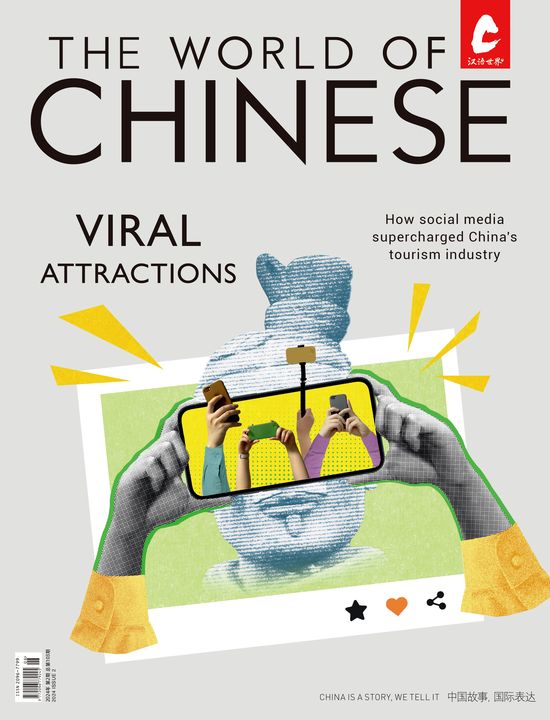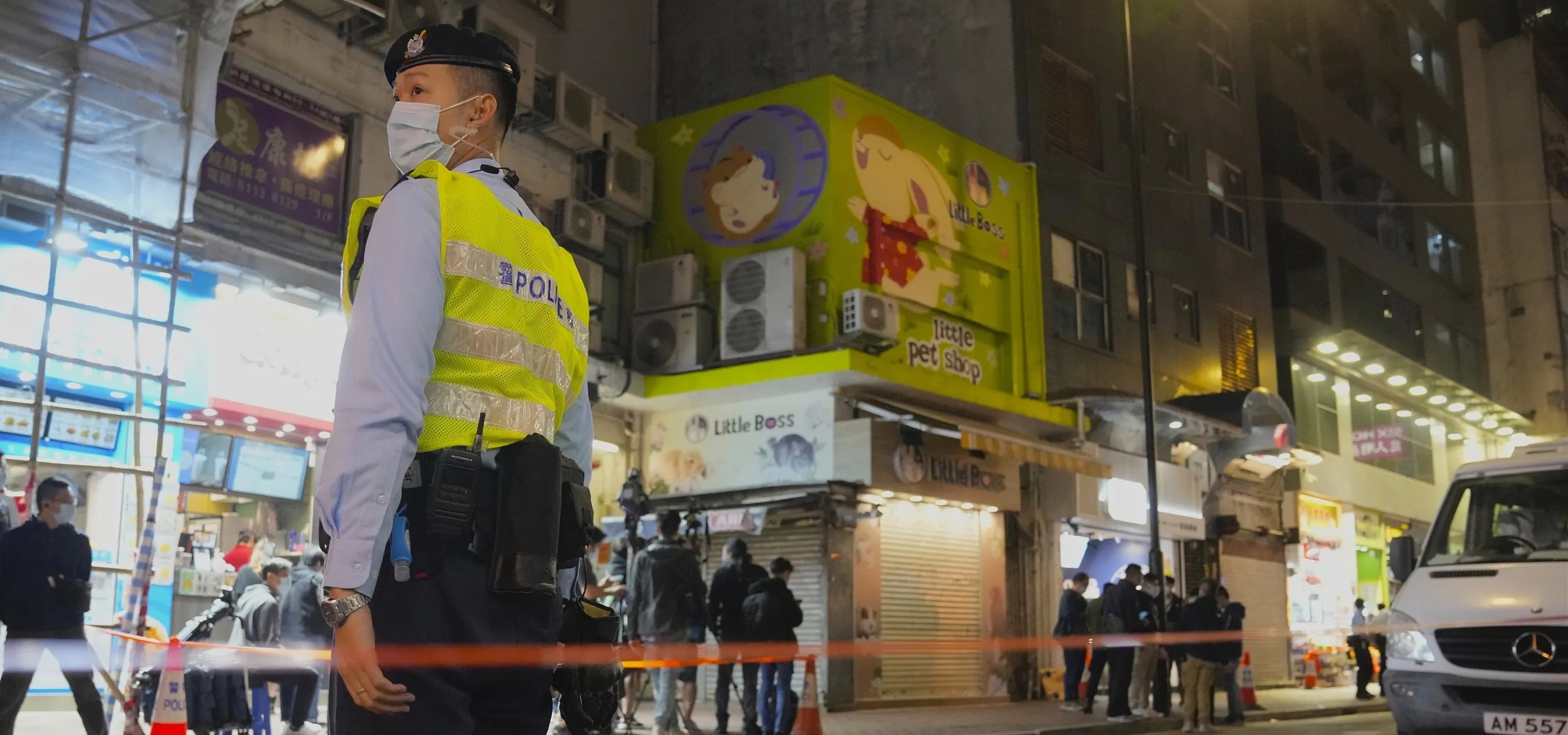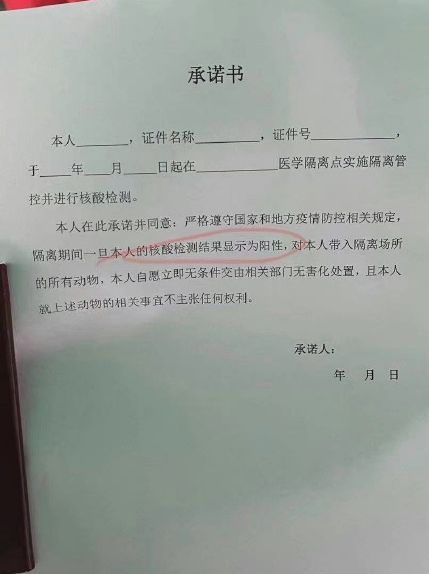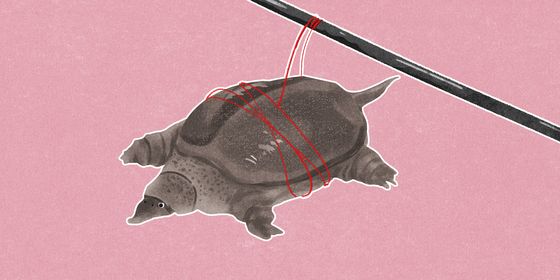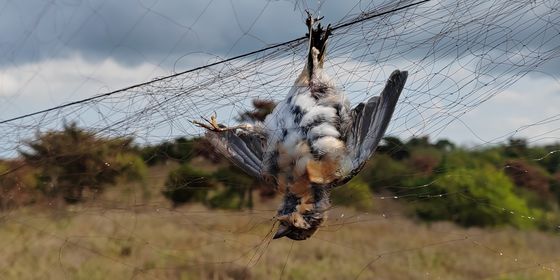China’s strict Covid-19 policies mean pets face euthanasia when owners are quarantined
I t’s the latest case in a tragic trend. When an employee in a pet shop in Hong Kong tested positive for Covid-19 on January 18, authorities announced they would cull 2,000 small animals, including hamsters, in the shop. All customers who had purchased hamsters from the shop after January 7 would be traced and placed in quarantine, and must hand over their pet to be put down.
Covid-19 has been a hard time for pets worldwide. On the Chinese mainland, strict lockdown and quarantine measures for cluster outbreaks have put animals at risk of being culled by local governments in their quest for zero cases, or abused by fearful, uninformed owners.
In the first months of the epidemic in 2020, when numerous cases of animals around the world testing positive for Covid-19 emerged, many reasoned “that if people can infect their pets with Covid, then animal-to-human infections are certain,” Guo Peng, an associate professor researching animal ethics at Shandong University, tells TWOC.
Though the World Health Organization has said there is no evidence that animals can transmit Covid-19 to humans, photos spreading on Chinese social media in February 2020 showed dead cats and dogs on sidewalks in a number of cities, apparently killed or abandoned by scared owners and vigilante community workers who believed they could spread the virus.
Panicked responses aside, China has no guidelines on how to treat pets who have been in close contact with patients. That leaves the problem to local governments and local health authorities to deal with as they see fit. “There isn’t a clear guideline or methodological directive from a [central] authority that lets managers at the grassroots level know how to deal with the problem properly,” says Guo.
Since then, cases of Chinese epidemic-prevention staff putting down pets—positive or not—have repeatedly outraged netizens. September last year saw three cats put down by authorities after testing positive for Covid-19 in Harbin, Heilongjiang province, despite their owner’s protests. In November, a dog-owner in Shangrao, in central China’s Jiangxi province, who’d been evacuated from her apartment after her complex reported a positive case, was horrified to see a surveillance video showing two epidemic-prevention workers entering her home and appearing to beat her pet corgi to death with a crowbar.
In early January of this year, it emerged on Weibo that a Shanghai hotel, quarantine site for foreign arrivals into China, had made it a condition of entry that pet owners sign a document giving consent for their pet to be put down if the owner tests positive.
Culling livestock to prevent disease is ubiquitous around the world. On January 5, the Indian state of Kerala ordered 38,000 poultry birds be killed in order to combat an outbreak of avian flu. Six million cows and sheep were culled in the UK in 2001 to combat an outbreak of Foot and Mouth Disease.
In late 2020, after scientific studies concluded that minks not only could catch Covid-19, but could also transmit it back to humans, Spain and the Netherlands performed mass culls, while the Danish government ordered the country’s entire stock of 17 million minks to be killed (though this decision had no legal basis in Denmark).
Covid-19 legislation in many countries prioritize the protection of human populations. In Vietnam, a couple who tested positive for Covid had 12 pet dogs euthanized by authorities as a precaution in 2020. In some countries, however, more widespread veterinary care and preexisting animal protection laws can mitigate harm: The US Center for Disease Control, for example, has issued detailed guidelines to help vets and local health officials trace, isolate, and treat pets infected with Covid-19.
Though Chinese society is steadily developing humane views of companion animals, especially in urban areas, the country’s laws make no distinction between pets and livestock, and no animal protection law is in place to ensure humane treatment.
When asked by reporters from Beijing News why they’d buried a cat alive when its owner was diagnosed with Covid in February 2020, community workers in one city in Jiangsu province cited the Law on the Prevention and Treatment of Infectious Diseases, which allows the culling of all “infected wild animals, livestock, and poultry.”
The tightness of quarantine and contact-tracing policies also results in abuse—like pets being left unattended and unfed for days as their owners are prevented from returning to their apartments if they are close contacts of someone who was infected.
Grassroots-level workers have justified their actions by reminding people to think of the bigger picture and put human lives first. Responding to Beijing News, one of the community workers who put the cats down in Harbin said, “If the cats are not dealt with, [the owner’s] house will be full of virus. She will not come back, then the people in this unit will not come back, then the people in this community will not come back, and the pandemic will never end.”
It is also difficult to implement pet protection when pet medical care is decentralized. According to Guo, “at present, there are no national-level state or NGO pet medical institutions” that could raise awareness of the problem, draft protective laws, or give funds for adequate medical treatment and quarantine for pets infected with Covid-19.
Some local governments have attempted to address the problem. During an outbreak in January of last year, authorities from Beijing’s Daxing district announced that families that had to go into quarantine could leave one member at home to look after their pets. The same month, Shanghai’s Huangpu district won plaudits for allowing pets to accompany their owners to the centralized quarantine site. In January of this year, Xinmin Evening News reported that three cats stranded without their owner in a locked-down building in Shenzhen had been given food and water by health workers, after their owner reached out to the city’s health commission on social media.
Guo suggests there should be a public information campaign to calm panicked pet-owners, and that the central government should come up with a quarantine and treatment system for pets that is integrated alongside the existing policies for humans.
At present, pets rely on the help of caring individuals alone. “For me, the ideal situation would be having enough notice [in advance] so I can leave my pet with a friend or professional dog care service while I’m in quarantine,” Nicoco Chan, a pet owner (and TWOC’s multimedia editor), says from Shanghai.
But as each neighborhood makes its own quarantine rules—be it being taking residents to a hotel or locking them down in their own home—so it’s almost impossible for her to form an emergency plan. “Oftentimes, it seems there is both not enough time to make arrangements and misinformation about how epidemic personnel will handle pets,” Chan says.
“I wish they could have been clearer about timing and next steps,” says Vickie Wang, whose boyfriend’s cat was stranded for two and a half days in his home in Shanghai earlier this month, when many residents of the building were locked out of their homes due to a suspected case. The couple had decided to try and give their keys to a neighbor, who will be able to feed the cat if it went without food for longer than two days. “A big part of the anxiety and frustration was not knowing what would happen next and when.”
